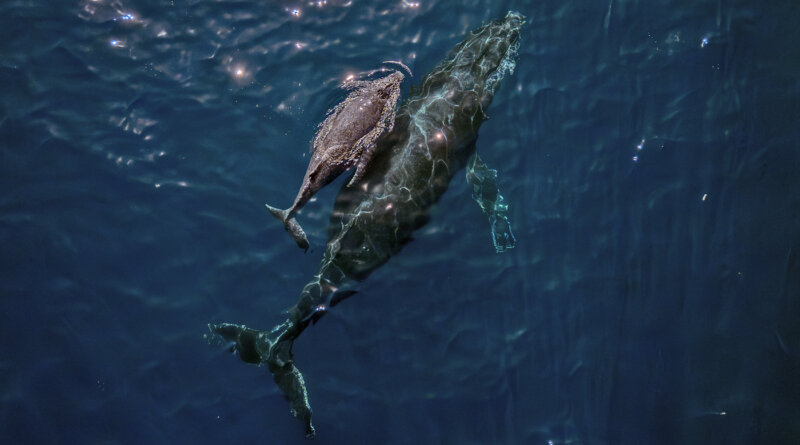Indigenous leaders want to protect whales from climate change : NPR

A mother humpback whale and calf are seen on the coast of Vitoria, Espirito Santo state, Brazil on August 22, 2023.
Carl de Souza/AFP via Getty Images
hide caption
toggle caption
Carl de Souza/AFP via Getty Images

A mother humpback whale and calf are seen on the coast of Vitoria, Espirito Santo state, Brazil on August 22, 2023.
Carl de Souza/AFP via Getty Images
The indigenous leaders of New Zealand, Tahiti, Tonga and the Cook Islands have signed a treaty granting whales legal personhood.
It’s a step Māori conservationist Mere Takoko says will pressure governments to do more to help the large sea mammals.
“What we’re trying to achieve here is to provide whales with certain rights,” Takoko told Morning Edition. “Those rights include the right to freedom of movement, natural behavior, development, cultural expression – which includes language – to a healthy environment, healthy oceans, and indeed the restoration of their populations.”
Takoko leads Hinemoana Halo Ocean Initiative, the New Zealand-based group that spearheaded the treaty.
She says the treaty lays the groundwork for legislation to be written to protect the whales, or, as the Māori call them, tohorā — the sacred ancestors of indigenous Polynesians.
Without tohorā ,Takoko says, the web of all marine life would collapse.
Heidi Pearson is a professor of marine biology at the University of Alaska Southeast in Juneau. She says that because whales are migratory, traversing vast areas of the ocean, they are especially vulnerable to the effects of climate change – like the possibility of more marine heatwaves.
“When I’m asked what the main threats are to whales, I usually say four things,” Pearson said. “Climate change, ship strikes, fisheries entanglement and noise pollution.”
This is where the legal protections of personhood could make a real difference, says Ralph Chami. He’s the CEO and Cofounder of Blue Green Future, and the lead economist behind the initiative.
Chami points out that whales capture and store carbon in their bodies throughout their lifetimes. When they die, they sink to the bottom of seafloor and the carbon in their bodies is prevented from returning to the atmosphere.
Chami estimates that one whale – measured in the unwanted carbon it removes from the atmosphere – could be worth about $2 million. So, if a ship strikes a whale, there would be fines.
Thus, the goal, Chami says, is to mandate vessels to use anti-collision devices, and decrease the likelihood of hitting a whale in the first place.
While Pearson debates the accuracy of the $2 million figure and worries about the danger of monetizing whale carbon, she believes that granting legal personhood could do wonders for whale conservation.
At its root, Pearson says, personhood is about valuing non-human lives.
“For me, that’s what’s always driven me and my work with whale and other marine mammal conservation,” Pearson said. “Just recognizing their intrinsic value, their right to be on the earth as much as you and I.”
Granting nature these kinds of rights is not a new idea. But Chami says it’s becoming a more common way to combat climate change.
“In Costa Rica, they confer personhood on bees,” Chami said. “In Panama, they conferred personhood on leatherback turtles. In Ecuador, nature has rights.”
Both New Zealand and Bangladesh have granted rivers personhood. In 2017, New Zealand became the first country to bestow legal rights to a specific river – a victory for the local Māori people.
Meanwhile, Bangladesh sits where three major rivers converge and empty in the Bay of Bengal – nearly 100% of its land is delta land. The legal designation is intended to protect that delta – the world’s largest – from degradation.
The idea of personhood, Chami says, is about visibility.
“So this whole thing is to make, in this case, the whale visible,” Chami says. Because things that are visible cannot be ignored.
The audio for this story was edited by Ashley Westerman.






